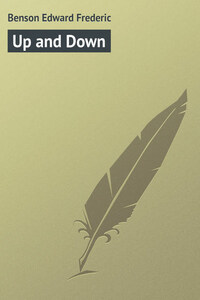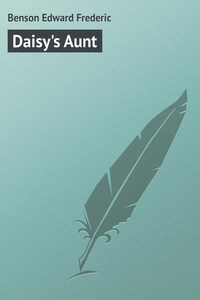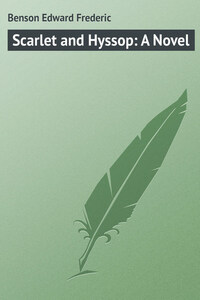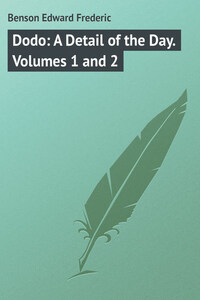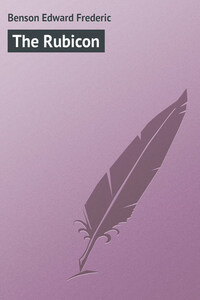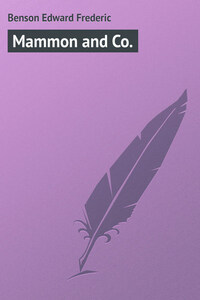I do not know whether in remote generations some trickle of Italian blood went to the making of that entity which I feel to be myself, or whether in some previous incarnation I enjoyed a Latin existence, nor do I greatly care: all that really concerns me is that the moment the train crawls out from its burrowings through the black roots of pine-scented mountains into the southern openings of the Alpine tunnels, I am conscious that I have come home. I greet the new heaven and the new earth, or, perhaps more accurately, the beloved old heaven and the beloved old earth; I hail the sun, and know that something within me has slept and dreamed and yearned while I lived up in the north, and wakes again now with the awakening of Brünnhilde…
The conviction is as unfathomable and as impervious to analysis as the springs of character, and if it is an illusion I am deceived by it as completely as by some master-trick of conjuring. It is not merely that I love for their own sakes the liquid and dustless thoroughfares of Venice, the dim cool churches and galleries that glow with the jewels of Bellini and Tintoret, the push of the gliding gondola round the corners of the narrow canals beneath the mouldering cornices and mellow brickwork, for I should love these things wherever they happened to be, and the actual spell of Venice would be potent if Venice was situated in the United States of America or in Manchester. But right at the back of all Venetian sounds and scents and sights sits enthroned the fact that the theatre of those things is in Italy. Florence has her spell, too, when from the hills above it in the early morning you see her hundred towers pricking the mists; Rome the imperial has her spell, when at sunset you wander through the Forum and see the small blue campanulas bubbling out of the crumbling travertine, while the Coliseum glows like a furnace of molten amber, or pushing aside the leather curtain you pass into the huge hushed halls of St. Peter's; Naples has her spell, and the hill-side of Assisi hers, but all these are but the blossoms that cluster on the imperishable stem that nourishes them. Yet for all the waving of these wands, it is not Bellini nor Tintoret, nor Pope nor Emperor who gives the spells their potency, but Italy, the fact of Italy. Indeed (if in soul you are an Italian) you will find the spell not only and not so fully in the churches and forums and galleries of cities, but on empty hill-sides and in orchards, where the vine grows in garlands from tree to tree, and the purple clusters of shadowed grapes alternate with the pale sunshine of the ripened lemons. There, more than among marbles, you get close to that which the lover of Italy adores in her inviolable shrine, and if you say that such adoration is very easily explicable since lemon trees and vines are beautiful things, we will take some example that shall be really devoid of beauty to anyone who has not Italy in his heart, but to her lover is more characteristic of her than any of her conventional manifestations.
So imagine yourself standing on a hilly road ankledeep in dust. On one side of it is a wine-shop, in the open doorway of which sits a lean, dishevelled cat, while from the dim interior there oozes out a stale sour smell of spilt wine mingled with the odour of frying oil. A rough wooden balcony projects from the stained stucco of the house-front, and on the lip of the balcony is perched a row of petroleum tins, in which are planted half a dozen unprosperous carnations. An oblong of sharp-edged shadow stretches across the road; but you, the lover of Italy, stand in the white of the scorching sunshine, blinded by the dazzle, choked by the dust, and streaming with the heat. On the side of the road opposite the wine-shop is a boulder-built wall, buttressing the hillside; a little behind the wall stands a grey-foliaged olive-tree, and on the wall, motionless but tense as a curled spring, lies a dappled lizard. From somewhere up the road comes the jingle of bells and the sound of a cracked whip, and presently round the corner swings a dingy little victoria drawn by two thin horses decorated between their ears with a plume of a pheasant's tail feathers. The driver sits cross-legged on the box, with a red flower behind his ear, and inside are three alien English folk with puggarees and parasols and Baedekers. You step aside into the gutter to avoid the equipage, and as he passes, the driver, with a white-toothed smile, raises and flourishes his hat and says, "Giorno, signor!" The lizard darts into a crevice from which his tail protrudes, the carriage yaws along in a cloud of dust… It all sounds marvellously ugly and uncomfortable, and yet, if you are an exiled Italian, the thought of it will bring your heart into your mouth.
It was just this, of which I have given the unvarnished but faithful jotting, that I saw this morning as I came up from my bathe, and all at once it struck me that this, after all, more than all the forums and galleries, and gleams of past splendour and glory of light and landscape, revealed Italy. But that was all there was to it, the sense of the lizard and the dust and the
